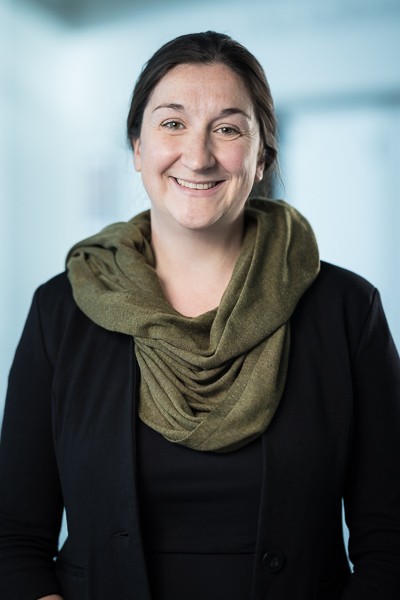
Anne V. Kirby, PhD, is an associate professor in the Department of Occupational and Recreational Therapies. Her research emphasizes community-engaged research approaches to address issues of importance to individuals on the autism spectrum, other disability communities, and other
marginalized groups. As a successful investigator, she's been consistently funded by national organizations like the Centers for Disease Control and Prevention and the National Institute of Mental Health. She's been part of the University's VPCAT Program, received the COH New Investigator Award in 2018, and was recognized as a Vitae Scholar in 2021:

-
Why did you decide to pursue your line of research?
I started working with autistic people when I was in high school. Those experiences drew me to become an occupational therapist first, and then a researcher. In terms of the specific topics I study, I try to focus on areas and questions that are important and meaningful to autistic people. I listen to the community of autistic people and their families by listening to self-advocates, conducting qualitative research, and using community-engagement strategies. Those strategies have led me to develop a focus on supporting the transition to adulthood and on suicide risk and prevention for autistic people.
-
What sort of training did you need to get into your current specialty?
Prior to coming to the U, I received my PhD at the University of North Carolina at Chapel Hill which provided an excellent foundation for my focus on autism research. Since beginning my faculty position here in 2015, I have been fortunate to take part in several mentored training opportunities that allowed me to specialize in conducting a blend of epidemiological, qualitative, educational intervention, and community-engaged research approaches. Applying this array of methods allows me to better understand and then address topics of importance to community members. My training in these areas was supported by the VPCAT Program, a KL2 grant, a K23 grant, an American Occupational Therapy Foundation intervention grant, and an amazing team of mentors within and outside of the U.
-
How would you give an “elevator pitch” about what you research, to someone who doesn’t have any background knowledge?
I conduct studies to better understand experiences autistic people have to identify unmet needs and then develop educational programs to help address those needs. My current
research focuses most on supporting autistic people through the transition to adulthood and on suicide prevention for the autistic community. -
What are you most proud of in your research career?
I’m really proud of my studies that aim to raise awareness of autistic people’s perspectives on their own lives. I’ve conducted studies involving in-depth interviews with autistic children,
adolescents, and adults. And my latest research involves autistic people as partners on all stages of the research study. Partnering with autistic people has elevated the research in so many ways! -
What’s your biggest research goal over the next five years?
With new funding from the National Institute of Mental Health, we aim to develop
comprehensive policy and practice recommendations for suicide prevention for the autistic community. I’m really excited about this work, which will be conducted in partnership with
collaborators from the University of Florida and a team of autistic community partners. -
How does your research tie into the College of Health’s goal of redefining the human healthspan?
By supporting autistic people with their unmet needs, I hope that we’re supporting more
satisfying lives. More specifically, my suicide prevention work addresses both aspects of the College of Health’s goal to redefine the human healthspan—we aim for this work to both add more years to life (by preventing death by suicide) and to support more life satisfaction for the autistic community (by reducing distress and despair that lead to suicide risk).